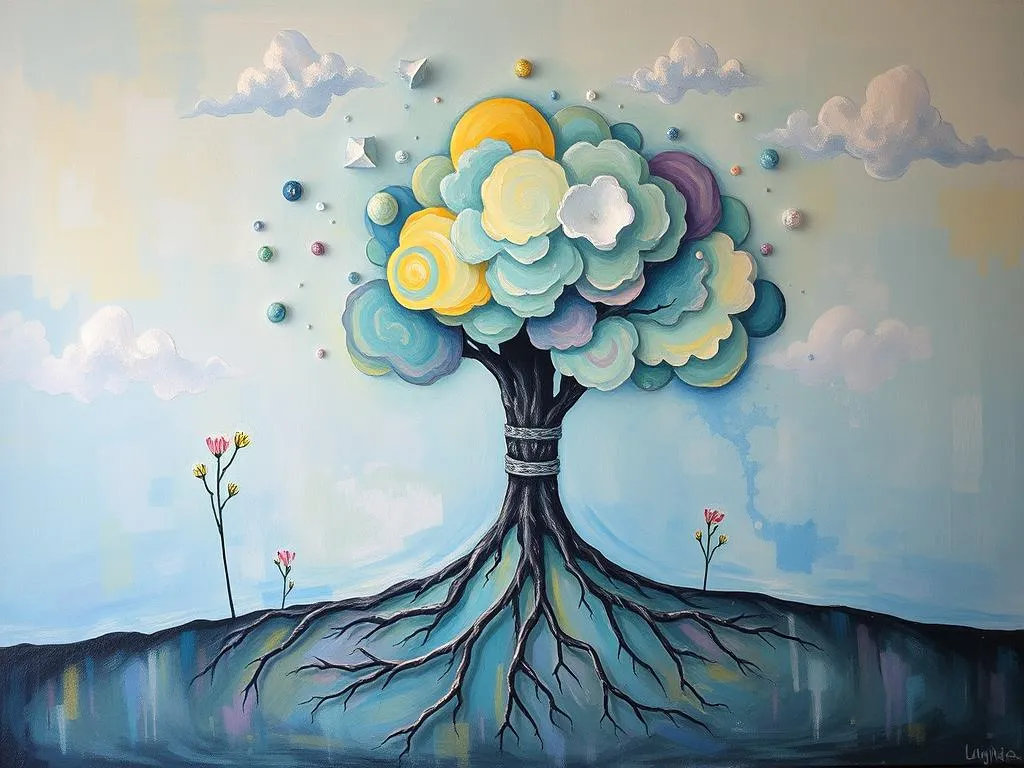
Have you ever woken up from a dream only to be left with a feeling of confusion, perhaps even a tinge of sadness? Dreams often serve as a window into our subconscious, revealing thoughts and emotions we might overlook in our waking lives. One particularly poignant theme that emerges in the realm of dreams is the sense of forgetting roots—the ties that connect us to our past, our identity, and our heritage. This dream symbol can evoke feelings of loss, disconnection, and an overwhelming desire to find meaning in our lives.
In a world that moves at lightning speed, it’s easy to overlook the significance of our origins. However, understanding what it means to forget our roots in our dreams can provide crucial insights into our current emotional state and personal growth. So, let’s embark on this journey together, exploring the rich tapestry of meanings behind these dreams, examining relatable scenarios, and ultimately discovering how we can cultivate a deeper connection to ourselves.
The Roots of Meaning: A Symbolic Exploration
Dreams about forgetting roots often symbolize a loss of identity or a feeling of being disconnected from one’s past. This can manifest in various forms, including a sense of being lost, feeling unanchored, or experiencing an overwhelming desire to return to a place or time that holds significance. The roots we forget may represent family, culture, traditions, or even personal history—elements that shape who we are.
In many cultures, roots symbolize heritage and belonging. The Native American belief in the importance of ancestry emphasizes the idea that our roots connect us to our past and guide our future. In contrast, some Eastern philosophies suggest that forgetting our roots may lead to a lack of balance and harmony in our lives. This duality highlights the importance of recognizing and honoring our origins, as they provide a foundation for our personal growth.
From a psychological perspective, dreams about forgetting roots can also indicate a fear of change or the unknown. As we navigate life’s transitions—whether it’s a new job, moving to a different city, or entering a new relationship—we may feel a sense of loss regarding our previous identities. These dreams serve as reminders to reflect on our past and integrate those experiences into our present selves.
When we delve deeper into the symbolism of forgetting roots, we can identify key concepts that may resonate with our personal experiences. These include:
- Identity: Our roots shape our sense of self.
- Heritage: A connection to cultural and familial traditions.
- Disconnection: The feeling of being unmoored or isolated.
- Change: Navigating life transitions and their emotional impacts.
- Reflection: The importance of exploring the past to understand the present.
- Growth: The potential for personal development through self-discovery.
- Connection: The desire to re-establish links to our origins.
- Belonging: The need for acceptance and community.
Understanding these concepts can help illuminate the messages hidden within our dreams, guiding us toward greater self-awareness and fulfillment.
Lost in Translation: Scenarios of Forgetting Roots
Dreams often present us with vivid scenarios that reflect our internal struggles. Here are a few relatable situations that may resonate with those who have dreamt of forgetting their roots:
-
The Abandoned Home: You find yourself wandering through an old, dilapidated house that once belonged to your grandparents. As you explore the dusty rooms, you feel a profound sense of loss and confusion. This dream may signify a longing to reconnect with your family heritage or unresolved issues related to your upbringing.
-
The Forgotten Language: In your dream, you attempt to communicate with a group of people speaking your native language, but the words escape you. You feel frustrated and isolated. This scenario highlights a fear of losing touch with your cultural identity and the need to reclaim it.
-
The Family Reunion: You attend a family gathering but find that you don’t recognize anyone. As you try to engage in conversations, you struggle to relate to their experiences. This dream reflects feelings of disconnection from your familial roots and a desire to understand your place within the family dynamic.
-
The Lost Artifact: You discover a cherished family heirloom that has been misplaced. As you search for it, you encounter various obstacles that prevent you from reclaiming it. This dream may symbolize the importance of acknowledging and preserving your family history, as well as the challenges you face in reconnecting with it.
-
The Ancestral Journey: You embark on a journey to visit your ancestral homeland, but when you arrive, everything feels foreign and unfamiliar. You struggle to find a sense of belonging. This dream emphasizes the desire to connect with your roots while grappling with the complexities of identity and belonging in a modern world.
Each of these scenarios can evoke powerful emotions, serving as reminders of our connections to our past. They encourage us to reflect on our experiences and recognize the significance of our roots in shaping our identity.
Replanting the Seeds: Cultivating Personal Growth
Understanding the symbolism behind dreams of forgetting roots can pave the way for personal growth. These dreams invite us to engage in meaningful practices that can help us reconnect with our origins and nurture our sense of self. Here are some practical insights to consider:
-
Reflect on Your Heritage: Take time to explore your family history. Interview relatives, delve into genealogical research, or participate in cultural events. Understanding your roots can foster a sense of belonging and identity.
-
Create a Personal Ritual: Develop a ritual that honors your heritage. This could be as simple as cooking a traditional family recipe, celebrating cultural holidays, or incorporating meaningful symbols into your daily life. Rituals can help ground us and reinforce our connections to the past.
-
Engage in Storytelling: Share your stories and listen to the stories of others. Storytelling can be a powerful tool for connecting with our roots, allowing us to share experiences and learn from one another. Consider joining a storytelling group or writing down your personal narrative.
-
Practice Mindfulness: Engage in mindfulness practices that encourage reflection on your past. Journaling, meditation, or even quiet walks in nature can help you process feelings of disconnection and promote a greater understanding of your identity.
-
Seek Community: Connect with like-minded individuals who share similar cultural backgrounds or interests. Finding community can provide support and affirmation as you navigate your journey of reconnection.
As you engage in these practices, remember that reconnecting with your roots is a personal journey. It may take time, patience, and courage to explore the complexities of your identity. However, embracing this journey can lead to profound personal growth and a deeper understanding of who you are.
In conclusion, dreams of forgetting roots offer valuable insights into our emotional landscapes. They encourage us to reflect on our identities, navigate the complexities of change, and cultivate connections to our past. By recognizing the symbolism in these dreams and engaging in intentional practices, we can replant the seeds of our heritage and nurture our personal growth. As you embark on this journey, remember: your roots are a vital part of your story, and honoring them can lead to a more authentic and fulfilling life.
Powerful Reflection: Embrace the journey of reconnecting with your roots as a pathway to self-discovery. In the tapestry of your life, every thread of history, every memory, and every experience weaves together to create the beautiful, complex person you are today.







